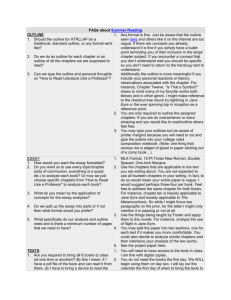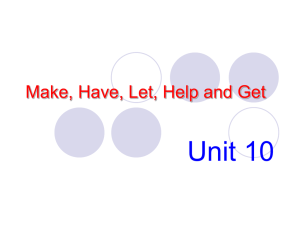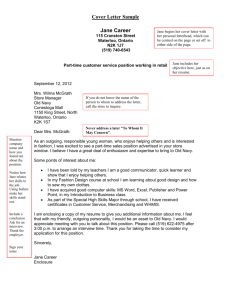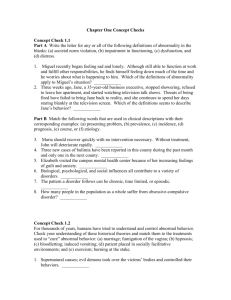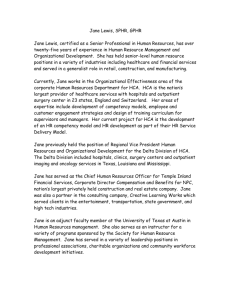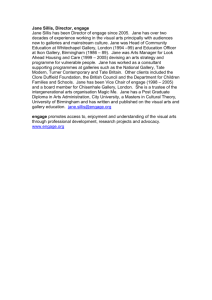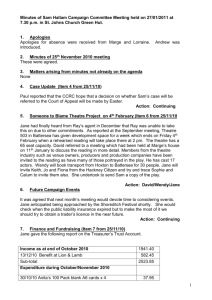The Big Four - Learning Horizon
advertisement
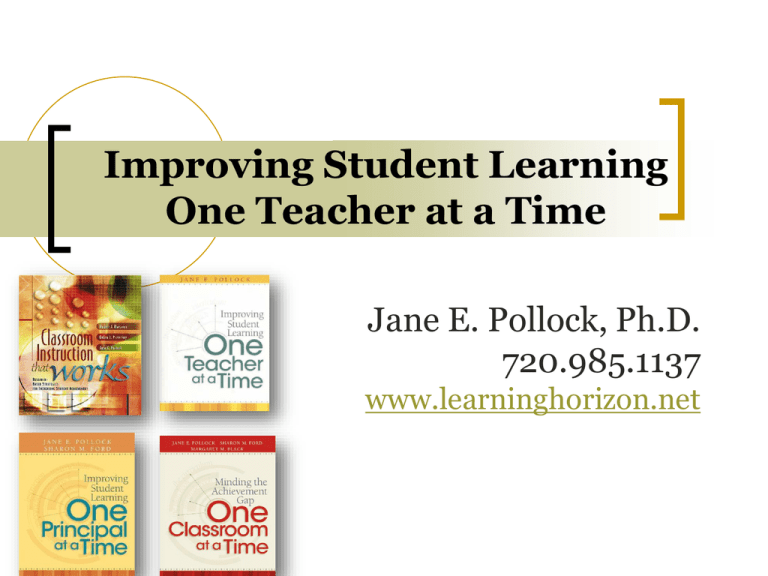
Improving Student Learning One Teacher at a Time Jane E. Pollock, Ph.D. 720.985.1137 www.learninghorizon.net Goal to Improve: Student Learning Pedagogical Automaticity Communication From C.I.A. to The Big Four: 1. Curriculum Learning Targets 2. Planned Instruction 3. Varied, Formative Assessment 4. Grading, Record Keeping, and Reporting Daily Lessons: Update your schema Mastery TEACHING ‘70s Master LEARNERS 21st C O – set objective A – anticipatory set I/M – input/modeling GP – guided practice IP – independent practice G - set a goal A – access prior knowledge N – new information (d or p) A – apply thinking/practice G – generalize, goal review, grade Check for Understanding/Monitor and Adjust C – closure With lots of feedback Homework Optional Assessment timely Chapter Category Average Effect Size Percentile Gain 2 Identifying similarities and differences 1.61 +45% 3 Summarizing and note taking 1.00 +34% 4 Reinforcing effort and providing recognition .80 +29% 5 Homework and practice .77 +28% 6 Nonlinguistic representations .75 +27% 7 Cooperative learning .73 +27% 8 Setting objectives and providing feedback .61 +23% 9 Generating and testing hypotheses .61 +23% Questions, cues, and advanced organizers .59 +22% 10 Daily Instruction G - set a goal chapters 8/4 (CITW) A – access prior knowledge chapters 6/7/10 N – new information (d or p) chapters 3/5/11 A – apply thinking/practice chapters 2/9/10 and 5 G – generalize, goal review, grade chapters 8/4 Homework/Assessment Unit 2 Pacing Guide- Kindergarten Teacher started with the standard she wanted the students to perform. RI.K.1 With prompting and support, ask and answer questions about key details in text. January 2012 English Language Arts 46 Benchmarks Reading Standard 1: Read closely to determine what the text says explicitly and to make logical inferences from it; cite specific textual evidence when writing or speaking to support conclusions drawn from the text. LA 8.1.1 Actively read texts to draw conclusions and make inferences based on information from texts. explicit (literal) v. implicit cite specific textual evidence LA 8.1.2 Actively read texts to draw conclusions and make inferences based on information from texts. explicit (literal) v. implicit Lesson Plan - GANAG Plus G - set a goal Select method such as: Parallel Teaching A – access prior knowledge Select method such as: Team Teach One Teach, One Assist N – new information (d or p) Select method such as: One Teach, One Observe A – apply thinking/practice Select method such as: Stations Teach, Small Group/Large Group G – generalize, goal review, Select method such as: One Teach, One Score grade The Soup and the Ladle G9 A N A G Good luck with GANAG! Jane E. Pollock, Ph.D. jpollock@learninghorizon.net Jane, former ESL and classroom teacher, worked as a district administrator and researcher for a research laboratory. She works worldwide with schools on longterm projects to improve teaching and supervision in order to improve student learning. Jane is the co-author of Dimensions of Learning Teacher and Training Manuals (1996), Assessment, Grading and Record Keeping (1999), Classroom Instruction That Works (2001), Improving Student Learning One Principal at a Time (2009) and Minding the Achievement Gap One Classroom at a Time (2012). Jane wrote Improving Student Learning One Teacher at a Time (2007) and Feedback: the Hinge that Joins Teaching and Learning (2011). Her current manuscript pending publication is i5: teaching innovation (2012). From Caracas, Venezuela, Jane earned degrees at the University of Colorado and Duke University. www.learninghorizon.net
